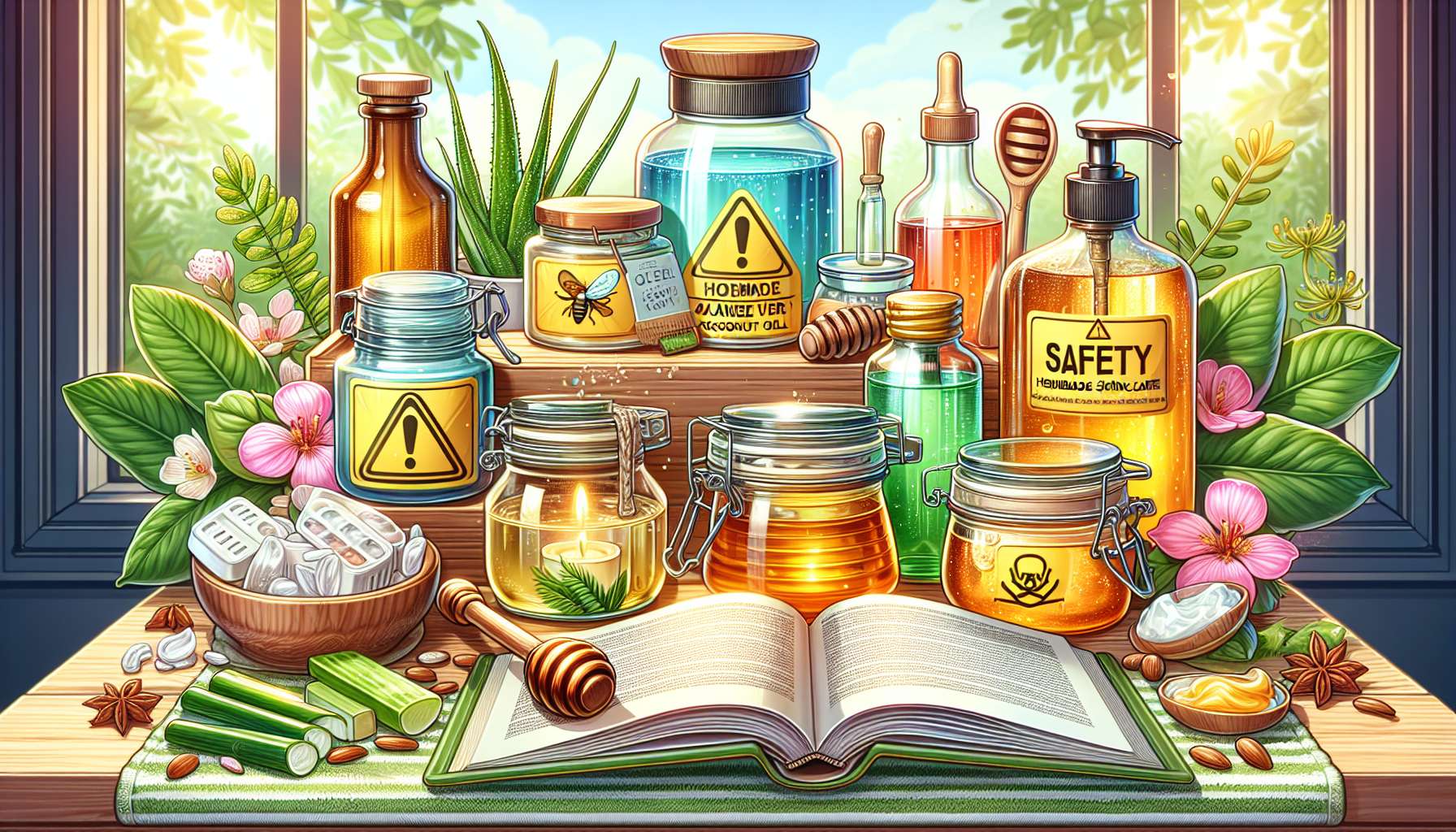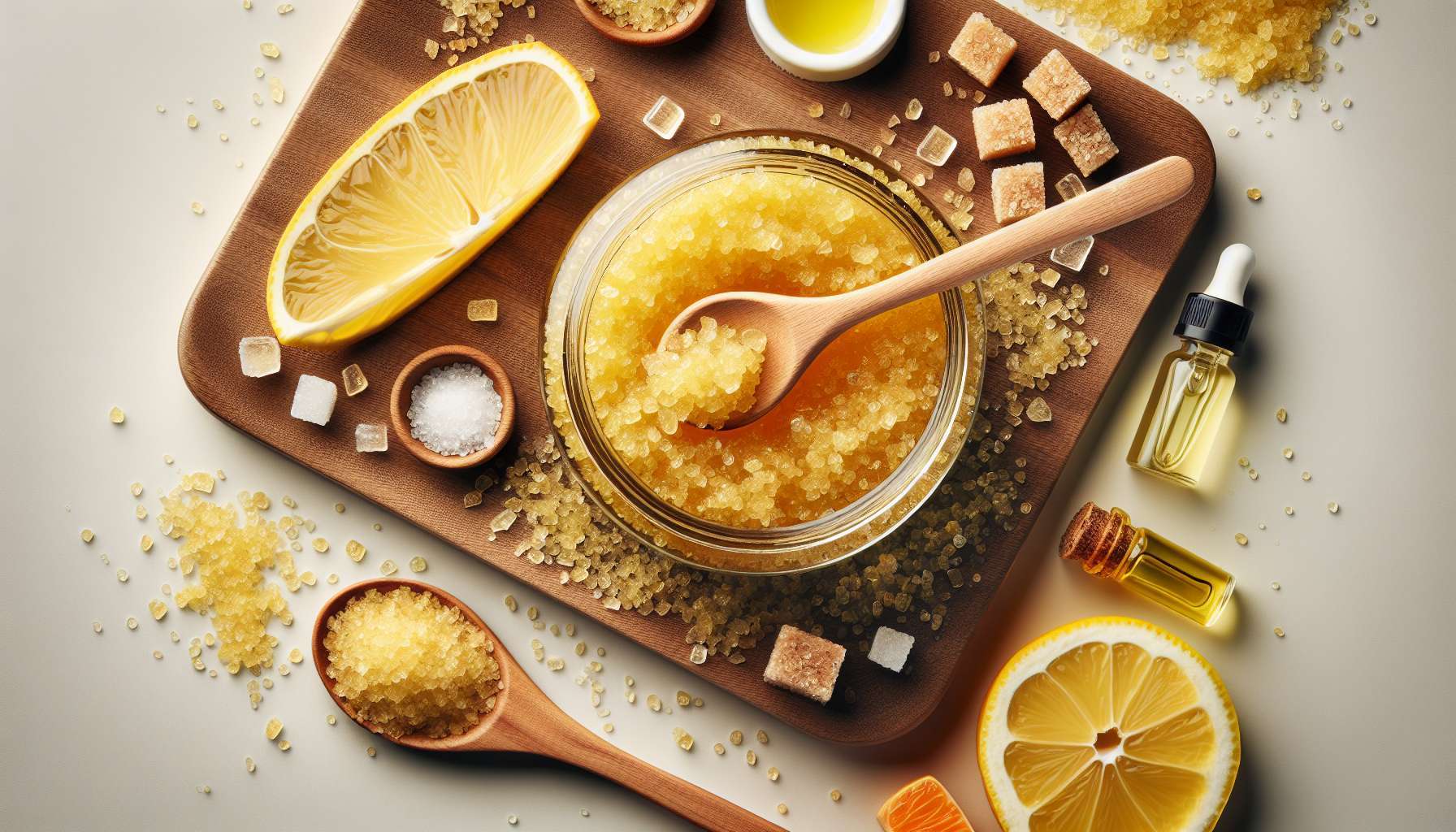Homemade Skincare Safety: A Comprehensive Guide
When it comes to skincare, the choices can be overwhelming. With a plethora of products available in the market, each claiming to work miracles on your skin, it’s no wonder that many people are turning to homemade skincare remedies. From natural face masks to DIY scrubs, the allure of using simple, natural ingredients to achieve glowing skin is undeniable.
However, before you raid your kitchen cabinets for ingredients to whip up your own skincare concoctions, it’s essential to understand the importance of homemade skincare safety. In this comprehensive guide, we will delve into the world of homemade skincare, exploring the benefits, risks, and best practices to ensure that your DIY skincare routine is not only effective but also safe for your skin.
The Rise of Homemade Skincare
Homemade skincare has been gaining popularity in recent years, fueled by a growing desire for natural, chemical-free products. Many people are turning to DIY skincare as a way to avoid harsh chemicals found in commercial products and to have more control over what they are putting on their skin.
From avocado face masks to coconut oil hair treatments, the internet is filled with recipes for homemade skincare remedies that promise to deliver glowing, healthy skin. While many of these DIY recipes can be effective, it’s crucial to approach homemade skincare with caution and awareness of potential risks.
The Importance of Safety in Homemade Skincare
When it comes to skincare, safety should always be a top priority. Just because a product is natural or homemade does not automatically make it safe for use on your skin. In fact, some homemade skincare remedies can do more harm than good if not used correctly.
One of the main risks associated with homemade skincare is the potential for allergic reactions or skin irritation. Natural ingredients such as essential oils, citrus fruits, and certain herbs can be highly potent and may cause adverse reactions in some individuals. It’s essential to patch test any new homemade skincare product on a small area of skin before applying it to your face or body to avoid potential reactions.
Understanding Ingredient Safety
When it comes to homemade skincare, the ingredients you use are of utmost importance. While natural ingredients can be beneficial for your skin, not all of them are safe for use in DIY skincare products. It’s crucial to research each ingredient thoroughly before incorporating it into your homemade skincare routine.
Some common ingredients found in homemade skincare recipes, such as lemon juice or baking soda, can be too harsh for the skin and may cause irritation or damage. On the other hand, ingredients like honey, oatmeal, and aloe vera are known for their soothing and hydrating properties and are generally safe for use in homemade skincare products.
Best Practices for Homemade Skincare
To ensure the safety and effectiveness of your homemade skincare products, it’s essential to follow best practices when creating and using them. Here are some tips to keep in mind:
1. Research Ingredients
Before using any new ingredient in your homemade skincare products, make sure to research its benefits, potential risks, and proper usage. Keep in mind that what works for one person may not work for another, so it’s crucial to understand how each ingredient may affect your skin.
2. Practice Good Hygiene
When preparing homemade skincare products, it’s essential to maintain good hygiene to prevent contamination. Make sure to wash your hands, utensils, and containers thoroughly before using them to avoid introducing bacteria or other impurities into your skincare products.
3. Patch Test Before Use
Before applying a new homemade skincare product to your face or body, conduct a patch test on a small area of skin to check for any adverse reactions. This can help you determine if the product is safe for use and prevent potential irritation or allergic reactions.
4. Store Properly
Homemade skincare products, especially those containing natural ingredients, may have a shorter shelf life than commercial products. Make sure to store your homemade skincare products in a cool, dry place away from direct sunlight to preserve their efficacy and prevent spoilage.
5. Discontinue Use If Irritation Occurs
If you experience any redness, itching, or irritation after using a homemade skincare product, discontinue use immediately. Some ingredients may be too harsh for your skin or may cause allergic reactions, so it’s essential to listen to your skin’s signals and stop using any product that causes discomfort.
Expert Opinions on Homemade Skincare Safety
Many skincare experts caution against the use of homemade skincare products, citing the potential risks of allergic reactions, skin irritation, and lack of scientific evidence to support their efficacy. While some natural ingredients may have benefits for the skin, it’s essential to approach homemade skincare with caution and consult with a dermatologist if you have any concerns about using DIY products.
Dr. Jane Smith, a board-certified dermatologist, emphasizes the importance of ingredient safety in homemade skincare products. “While natural ingredients can be beneficial for the skin, not all of them are safe for use in DIY skincare products. It’s essential to research each ingredient and understand how it may interact with your skin before incorporating it into your skincare routine.”
Common Misconceptions About Homemade Skincare
One common misconception about homemade skincare is that natural ingredients are always safe for use on the skin. While many natural ingredients can be beneficial for the skin, some may cause adverse reactions or irritation, especially when used in high concentrations or without proper dilution.
Another misconception is that homemade skincare products are always better than commercial products. While homemade skincare can be a fun and cost-effective way to care for your skin, not all DIY remedies are effective or safe for use. It’s essential to approach homemade skincare with caution and do your research before trying out new recipes.
Comparative Analysis: Homemade vs. Commercial Skincare
When comparing homemade and commercial skincare products, there are several factors to consider, including safety, efficacy, and cost. While homemade skincare may offer the benefit of using natural ingredients and avoiding harsh chemicals found in some commercial products, it may also pose risks of contamination, improper ingredient ratios, and lack of preservatives.
On the other hand, commercial skincare products are carefully formulated and tested to ensure safety and efficacy. They often contain a combination of active ingredients, preservatives, and stabilizers to deliver targeted results for various skin concerns. However, some commercial products may also contain potentially harmful ingredients or allergens, so it’s crucial to read labels and choose products that work best for your skin.
Conclusion
Homemade skincare can be a fun and rewarding way to care for your skin, but it’s essential to approach it with caution and awareness of potential risks. By researching ingredients, practicing good hygiene, and following best practices for creating and using homemade skincare products, you can enjoy the benefits of natural skincare while keeping your skin safe and healthy.
Remember, the key to effective skincare is understanding your skin’s needs and choosing products that work best for you. Whether you prefer homemade remedies or commercial products, prioritize safety and efficacy to achieve glowing, healthy skin.
To wrap things up, homemade skincare safety is all about balance using natural ingredients wisely, understanding your skin’s needs, and being mindful of potential risks. With the right knowledge and precautions, you can enjoy the benefits of homemade skincare while keeping your skin safe and healthy in the process.




